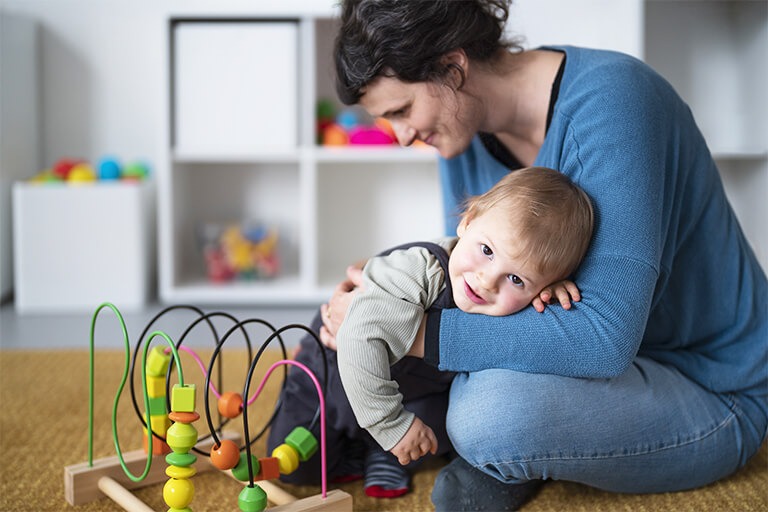Each child progresses through a distinct journey of growth and development. However, sometimes, some children might exhibit delays in reaching developmental milestones, causing concerns for parents and caregivers. Recognizing the signs of developmental delay is crucial in providing timely support and intervention to help children thrive.
What are Developmental Delays?
Developmental delays encompass a broad spectrum of issues that hinder a child’s physical, cognitive, communication, social, or emotional growth. These delays can occur in various areas of development and may arise due to genetic factors, complications during pregnancy or birth, environmental influences, or unknown causes.
Recognizing the Signs
1. Motor Skills:
- Gross Motor Skills: Children might struggle with activities such as sitting, crawling, walking, or running.
- Fine Motor Skills: Difficulties in tasks requiring hand-eye coordination, such as holding utensils, drawing, or buttoning clothes, could indicate delays.
2. Language and Communication:
- Speech Delays: Trouble forming words or sentences appropriate for their age can signal communication issues.
- Understanding: Difficulty following directions or responding to questions might suggest language comprehension challenges.
3. Cognitive Development:
- Learning Delays: Struggles in recognizing shapes, colors, or numbers and challenges in problem-solving might indicate cognitive delays.
- Memory Issues: Difficulty remembering or retaining information can hinder cognitive growth.
4. Social and Emotional Development:
- Limited social interaction: Children may have difficulty making friends or understanding social cues.
- Emotional Regulation: Difficulty managing emotions or exhibiting extreme behavior might be signs of delays.
5. Adaptive Skills:
- Self-Care: Problems with basic tasks like dressing, eating, or using the toilet may point to delays in adaptive skills.
When to Seek Help
Observing these signs doesn’t necessarily confirm a developmental delay, but if concerns persist or multiple indications manifest, seeking professional evaluation becomes crucial. Early intervention plays an essential role in supporting the child’s development, enhancing his abilities, and reducing long-term challenges.
Seeking Support and Intervention
1. Pediatrician Consultation:
- The first step involves discussing concerns with a pediatrician who can conduct developmental screenings and refer to specialists if needed.
2. Early Intervention Programs:
- These programs provide customized support to meet specific developmental needs, providing therapies such as speech, occupational, or physical therapy.
3. Special Education Services:
- In cases where delays significantly impact learning, accessing special education services at school can offer personalized education plans and support.
4. Therapeutic Activities at Home:
- Participating in activities that promote development, such as reading, playing games, or practicing motor skills, can complement professional interventions.
Importance of Supportive Environments
Apart from professional help, creating an environment conducive to a child’s development is essential. Providing love, patience, and encouragement can significantly impact their progress. Additionally, involving family members, teachers, and caregivers in the support network fosters a holistic approach to aid the child’s growth.
Breaking Stigmas and Embracing Differences
Understanding that developmental delays are not indicative of a child’s overall abilities or intelligence is crucial. This involves recognizing the uniqueness of each child, their strengths, and areas in which they can grow. Promoting inclusivity and understanding within communities helps break down stigmas associated with developmental differences.
Conclusion
Recognizing developmental delays in children demands attentive observation, empathy, and timely intervention. Each child’s journey is distinct, and while delays may pose challenges, they also present opportunities for growth and support. By fostering an environment that values each child’s unique development and seeking appropriate guidance and assistance, we can empower them to navigate their world with confidence and resilience. Remember, early identification and intervention pave the way for brighter futures for these remarkable children.
As parents, our collective efforts to understand, support, and embrace children with developmental delays are pivotal in ensuring they thrive and reach their full potential.
Dr. Olfa, a developmental pediatrician in Dubai, identifies the condition through early examination and evaluation of children to determine whether they suffer from developmental delay or not.




